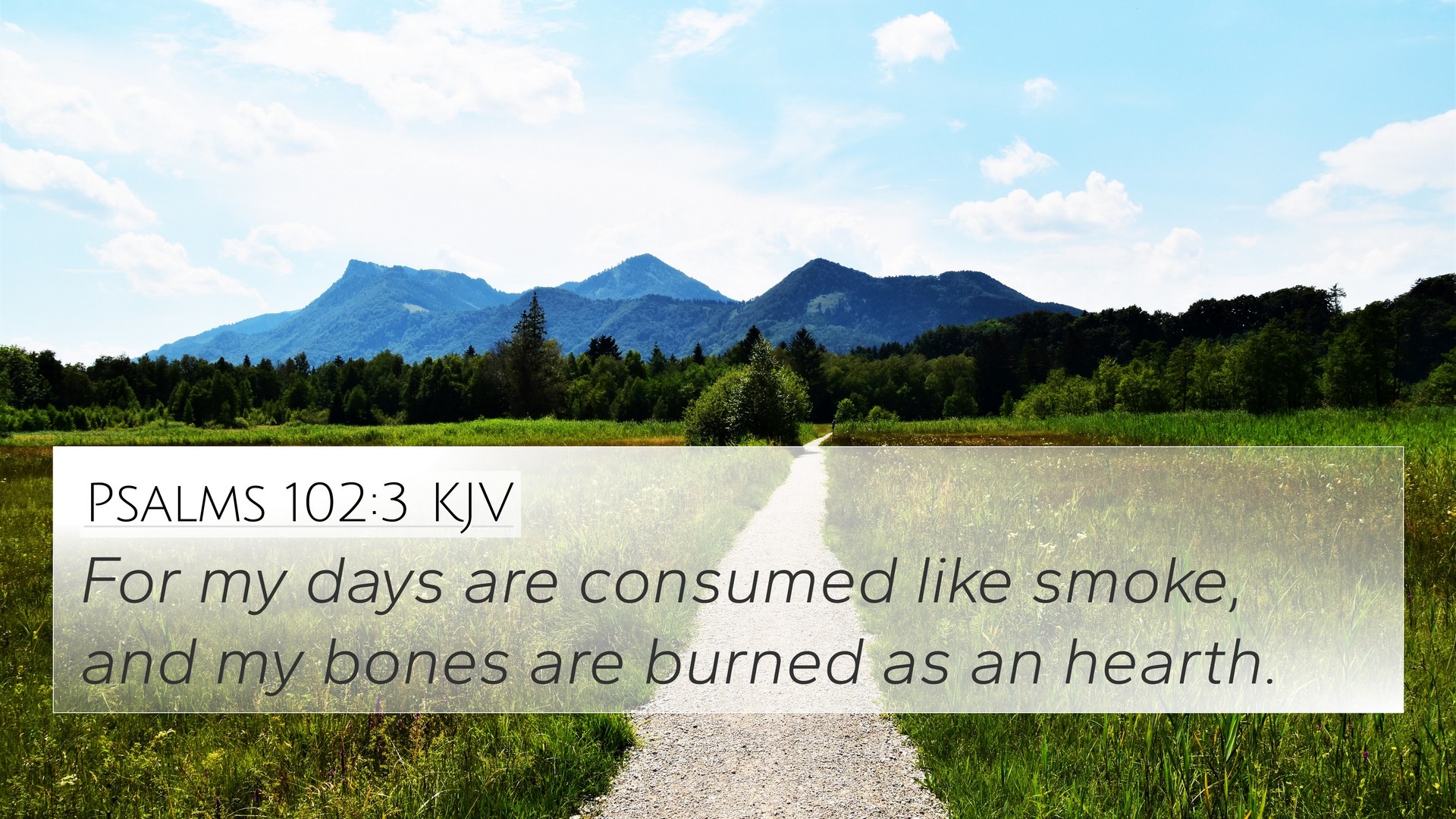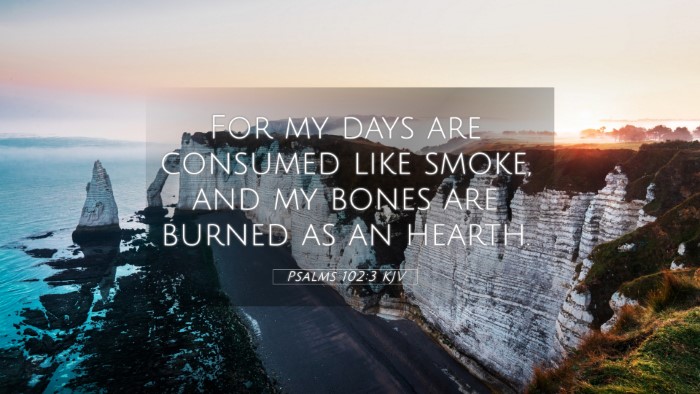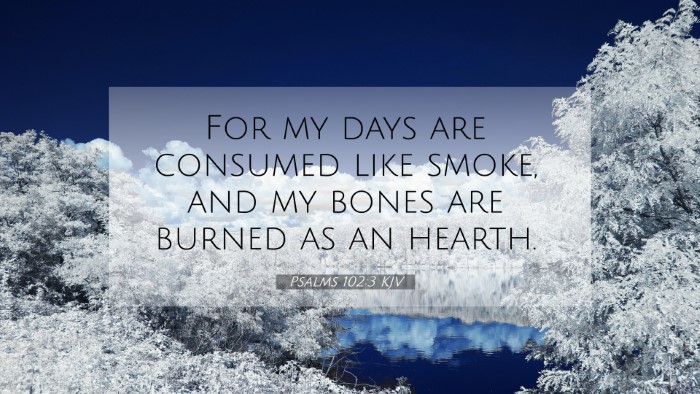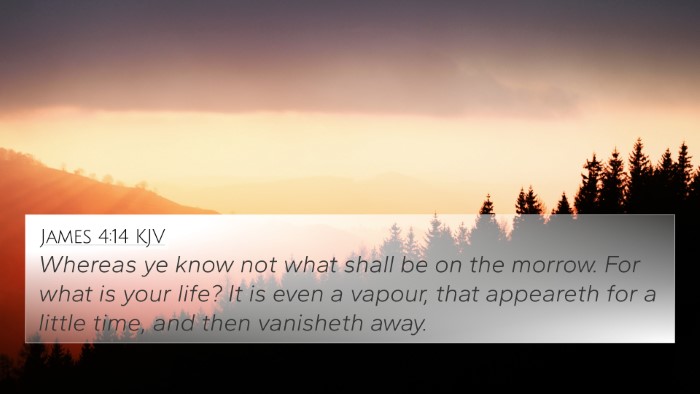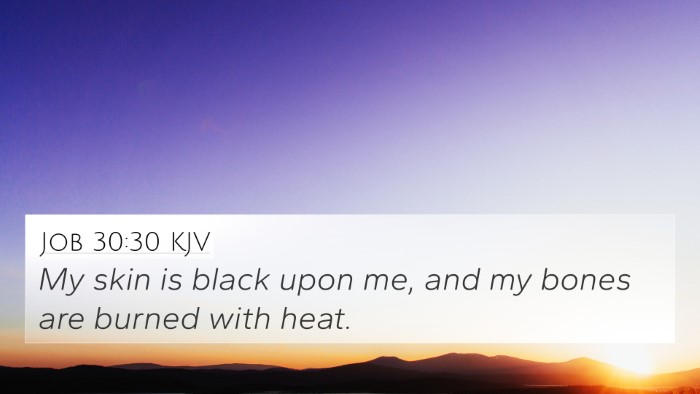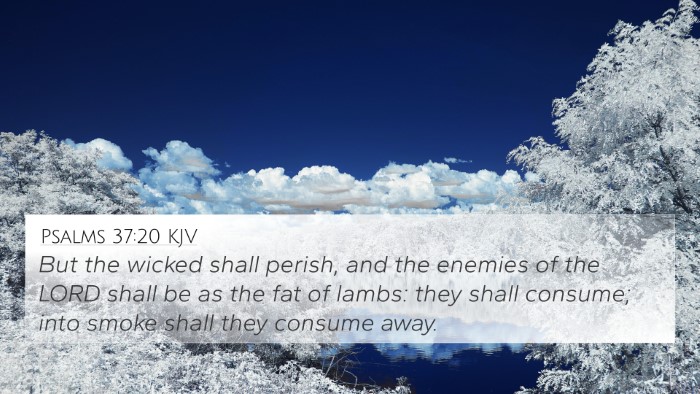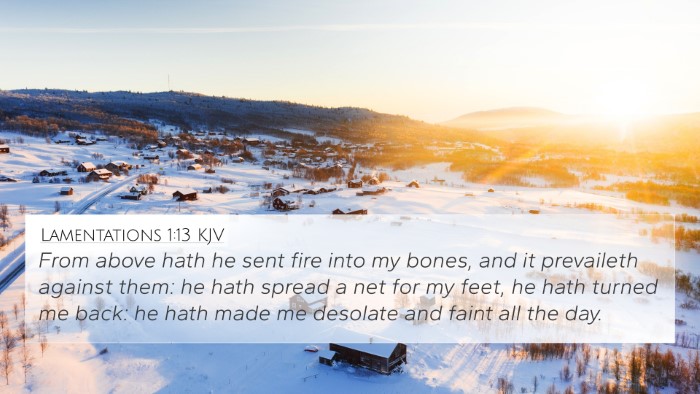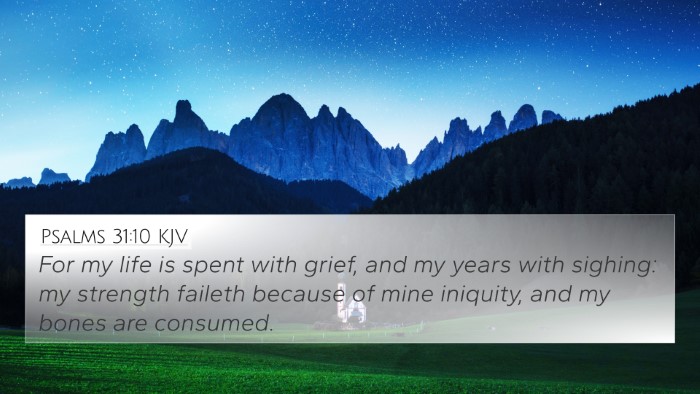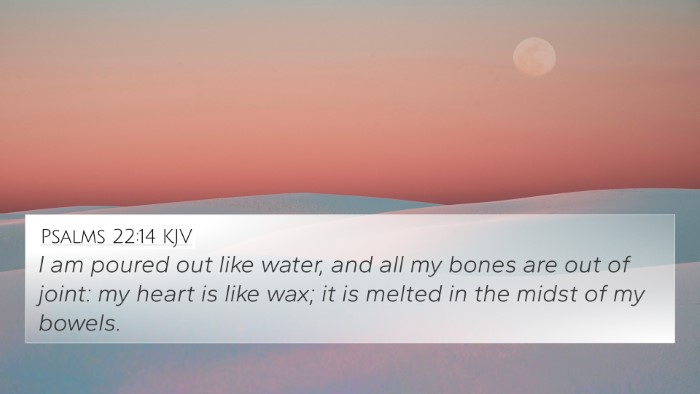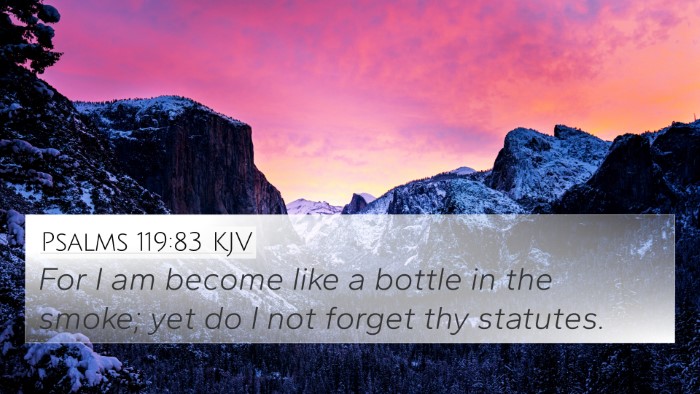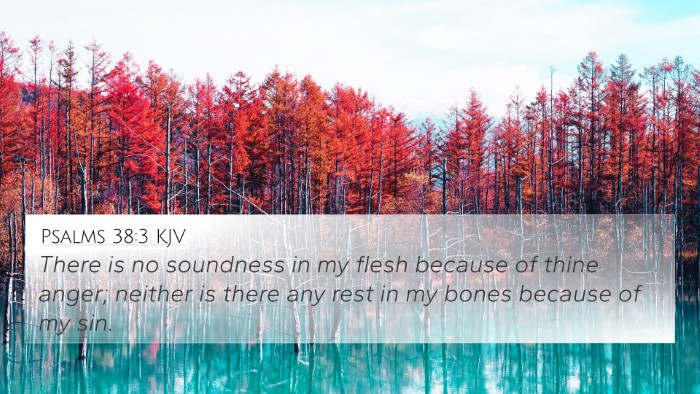Psalms 102:3 - Meaning and Interpretation
Psalms 102:3 states: "For my days are consumed like smoke, and my bones are burned as an hearth."
Summary of the Verse
In this poignant verse, the psalmist expresses deep anguish and despair. The imagery of smoke and burning bones signifies the ephemeral nature of life and the intensity of suffering. It evokes a sense of transience, highlighting how quickly life can diminish under the weight of affliction.
Commentary Insights
Insights from public domain commentaries like those by Matthew Henry, Albert Barnes, and Adam Clarke provide a rich understanding of this verse:
-
Matthew Henry's Commentary:
Henry describes this verse as a powerful metaphor for the fleeting nature of human life. He notes that just as smoke vanishes, so do the days of a troubled soul. Henry emphasizes the urgency of turning to God in times of trouble, as the despair expressed in this verse illustrates a cry for divine intervention.
-
Albert Barnes' Notes:
Barnes highlights the psychological state of the psalmist, focusing on how the heat of suffering causes one to feel broken and consumed. He makes connections to the idea of spiritual renewal, suggesting that acknowledging one’s affliction is the first step towards healing and restoration through God's grace.
-
Adam Clarke's Commentary:
Clarke interprets the phrases in this context as reflective of the psalmist’s lamentation and physical deterioration. He stresses that this verse connects with others that depict suffering and the need for God’s compassion. Clarke suggests that the image of 'bones burned as a hearth' symbolizes a deep internalization of pain and the longing for relief.
Bible Cross-References
Psalms 102:3 resonates thematically and contextually with several other Scriptures. Here are some key Bible verses that closely relate to this lament:
- Psalms 38:3: "Because of the sin of my guilt, there is no soundness in my flesh, nor health in my bones."
- Job 30:30: "My skin turns black and peels; my bones burn with fever."
- Psalms 31:10: "For my life is spent with sorrow, and my years with sighing; my strength fails because of my iniquity, and my bones waste away."
- Lamentations 1:13: "From on high He sent fire into my bones, and it overcame them; He spread a net for my feet; He turned me back."
- Psalms 102:4: "My heart is smitten, and withered like grass; so that I forget to eat my bread."
- Psalms 143:3: "For the enemy has persecuted my soul; he has crushed my life to the ground; he has made me dwell in darkness, like those who have long been dead."
- Matthew 11:28: "Come to me, all you who labor and are heavy laden, and I will give you rest."
- Isaiah 57:15: "For thus says the One who is high and lifted up, who inhabits eternity, whose name is Holy: 'I dwell in the high and holy place, and also with him who is of a contrite and lowly spirit, to revive the spirit of the lowly, and to revive the heart of the contrite.'"
- 2 Corinthians 4:16: "So we do not lose heart. Though our outer self is wasting away, our inner self is being renewed day by day."
- Philippians 3:21: "Who will transform our lowly body to be like his glorious body, by the power that enables him even to subject all things to himself."
Understanding Through Connections
The connections between Bible verses help deepen our understanding of the themes presented in Psalms 102:3. By employing tools for Bible cross-referencing and exploring the interplay between various Scriptures, we gain insight into the sufferings of faithful believers and the hope they find in God’s deliverance.
For instance, passages from Lamentations and Job echo similar sentiments of grief and physical distress, while New Testament invitations present the contrast of Christ’s promise to provide rest and healing for the weary. These cross-references serve as anchors, linking the experiences of the psalmist with the larger narrative of God’s redemptive work in humanity.
Thematic Bible Verse Connections
As we reflect on the themes of suffering, hope, and divine compassion encapsulated in Psalms 102:3, we can engage in a comparative Bible verse analysis. This method highlights how interconnected the Scriptures are, often addressing shared human experiences across both the Old and New Testaments.
-
Affliction and Deliverance: Connections can be made to verses that illustrate the cycle of suffering and subsequent deliverance, such as Matthew 5:4, which states, "Blessed are those who mourn, for they shall be comforted."
-
Hope Amidst Despair: The teachings from Romans 5:3-5 about rejoicing in sufferings because they produce endurance and hope further accentuate the human condition explored in Psalms 102.
-
God’s Presence: The assurance of God’s presence during tribulation is echoed in verses like Psalm 34:18, "The Lord is near to the brokenhearted and saves the crushed in spirit."
Conclusion
In conclusion, Psalms 102:3 serves as a profound reminder of the transient nature of life and the weight of suffering. Through the insights gathered from various commentaries and the rich tapestry of related biblical texts, we find a deeper understanding of our struggles and a pathway to hope through faith in God. Engaging with cross-referenced biblical texts enhances our understanding and provides a comprehensive perspective on the themes of loss, lament, and ultimately, restoration.
